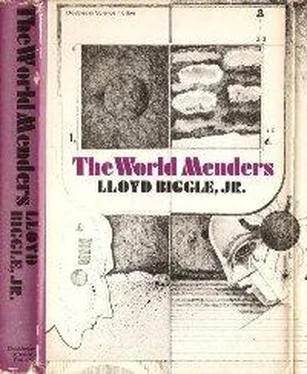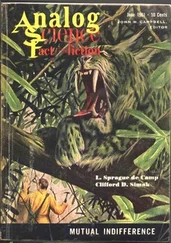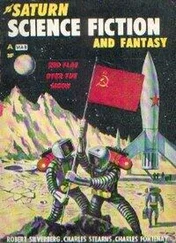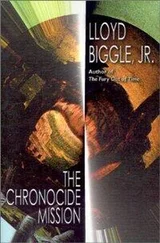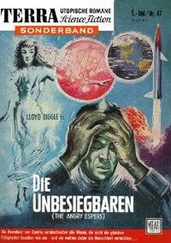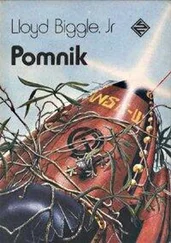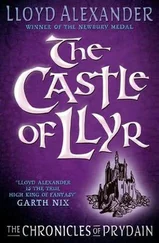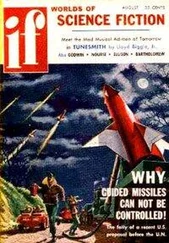Lloyd Biggle Jr. - The World Menders
Здесь есть возможность читать онлайн «Lloyd Biggle Jr. - The World Menders» весь текст электронной книги совершенно бесплатно (целиком полную версию без сокращений). В некоторых случаях можно слушать аудио, скачать через торрент в формате fb2 и присутствует краткое содержание. Год выпуска: 1971, Издательство: Doubleday, Жанр: Фантастика и фэнтези, на английском языке. Описание произведения, (предисловие) а так же отзывы посетителей доступны на портале библиотеки ЛибКат.
- Название:The World Menders
- Автор:
- Издательство:Doubleday
- Жанр:
- Год:1971
- ISBN:нет данных
- Рейтинг книги:5 / 5. Голосов: 1
-
Избранное:Добавить в избранное
- Отзывы:
-
Ваша оценка:
- 100
- 1
- 2
- 3
- 4
- 5
The World Menders: краткое содержание, описание и аннотация
Предлагаем к чтению аннотацию, описание, краткое содержание или предисловие (зависит от того, что написал сам автор книги «The World Menders»). Если вы не нашли необходимую информацию о книге — напишите в комментариях, мы постараемся отыскать её.
The World Menders — читать онлайн бесплатно полную книгу (весь текст) целиком
Ниже представлен текст книги, разбитый по страницам. Система сохранения места последней прочитанной страницы, позволяет с удобством читать онлайн бесплатно книгу «The World Menders», без необходимости каждый раз заново искать на чём Вы остановились. Поставьте закладку, и сможете в любой момент перейти на страницу, на которой закончили чтение.
Интервал:
Закладка:
Coordinator Paul came regularly and watched them from a distance. Several times Jan Prochnow joined them at their night fire, wistfully watching Liano. Once he tried to question her, and each successive query dropped into a pool of deepening silence and disappeared without a ripple. His embarrassment became acute and his withdrawal a controlled flight. Farrari quickly learned that Liano would sit gazing hypnotically into the fire as long as it burned, so when he thought the time had come for her to sleep he let the fire go out.
But she was improving. Her periods of staring silence were less frequent, she became more exacting, the pace of his training intensified. Peter Jorrul brought an ol agent, and the two accompanied them for a day and a night, the agent studying Farrari’s every move and, before he left, taking Farrari aside for a briefing on the horrors he was likely to encounter in an ol village. To Farrari, the real horror was that nothing could be done about it. The agents were not even permitted to try.
“Your main problem,” the agent said, “is that you aren’t relaxed enough. The olz are always relaxed. Sometimes their bodies don’t even tense when they’re whipped. You’re having trouble with the language, too—you don’t always say what you mean—but that’s minor. The olz don’t always say what they mean, either. The reason ol is so difficult is because it’s so simple. I’ll ask Graan to send you a tube of ol language cubes.”
Farrari said to Jorrul, “Do you think I might—”
And Jorrul smiled and said, “We’ll see.”
The two of them left, and Farrari and Liano started another circuit of the valley, Farrari concentrating on relaxation. The next day Graan sent the language cubes. Liano played them for him while they traveled, and Farrari relaxed and listened to such good effect that when the agent came again he had no comment. Jorrul did; he told Farrari to stop eating. “By ol standards,” he said caustically, “you’re fat, and there is no such thing as a fat ol.”
Farrari obediently starved off more weight. A week later the coordinator returned them to base, where Farrari had the contour of his forehead and the shape of his nose altered by surgery and sufficient body hair implanted so that he would not look like an abnormally bare-skinned ol. Another week in the field, and Jorrul returned to spend an entire day watching Farrari. At the end of it he grudgingly conceded that Far-rani might.
“But only for a day or two,” he cautioned. “We’ll put you down in an outlying district where there’s no one around but olz and a few durrlz and see what happens. And we’ll keep a sharp watch on you.”
The day or two became ten, and then twenty, and it suddenly dawned upon Farrari that they were on their own.
The olz fascinated him.
Even in fine harvest weather they huddled closely about the nightfire as soon as it was lit; as though wistfully attempting to soak up heat against the terrible ordeal of winter. The men seldom spoke, and when they did it was with a single grunt, a click, a gesture—threadbare remnants of the fantastically complex language Farrari had studied at base. He had to remind himself that the elements of ol speech as known to IPR had been painstakingly compiled over many years and from thousands of contacts. The whole was infinitely greater than any of its parts, for no single ol seemed to know much of his language. The probable destination of a spark flung on high was the ultimate limit of his abstract speculation; who had brought the last log to the fire and who would bring the next were the only social problems that interested him. If the language had words for injustice, for rights, for slavery, for revolution., IPR had never encountered them.
With the new harvest at hand, the olz had a full daily ration of food. While the weather remained mild, they would be warm. The cold and hunger of winter loomed ahead of them, and the starvation of spring that in the year of the half crop would inexorably take half their lives, but they were, at this moment in time, a tranquil people. That they seemed totally incapable of contemplating the future could have been the basis for their survival.
Liano fascinated him more than the olz.
The Branoff IV social structure was so commonplace that the more cynical IPR specialists referred to it as “trite.” It contained only two incongruities, two elements of uniqueness. One was the fact that only the kru owned slaves. The other was the yilesc.
In the world’s rigidly stratified society, the yilesc, her kewl, and her apprentice—if she had one—were the only individuals who existed outside the established order. Oddly enough, the yilescz were members of the master race, which scorned them. Words for yilesc and kewl did not occur in the ol language, and what the olz thought of them was not yet fully understood. Certain it was that the yilescz fulfilled some unknown function, either spiritual, physical, or social; that every ol village had a hut reserved for them; and that while there was doubt as to which needs of the olz were served by the yilescz, there was no doubt whatsoever that the olz had no one else to serve them.
Not even the aristocrats possessed the freedom of movement of a yilesc. It was assumed that some ancient kru had honored the yilescz with his patronage, and a few vestiges of that royal favor had survived the centuries. The apprentice was apparently optional, a girl of the yilesc’s own race who was bought, borrowed or stolen from the most lowly of city commoners. The yilesc invariably traveled with a male ol servant, making her kind the only private slaveholders in Scorvif. She possessed by right a narmpf and a cart. When her narmpf died, or her cart wore out, any durrl was traditionally bound to furnish a replacement. In the blunt realism of Branoff IV existence, few durrlz paid any attention to a tradition that involved only the well-being of the despised yilescz and by extension the scorned olz. The yilesc who lost her transportation was likely to walk until some durrl suffered an unaccountable twitch of generosity or perhaps thought to buy her influence to improve the work quota of his olz.
The roles of yilesc and kewl were made to order for a team of IPR agents. Not only could they travel freely, but as long as they stayed away from the cities and avoided the kru’s soldiers they had what was, for that violent world, an unusual degree of safety. IPR specialists quickly discovered whom the yilescz were, but after years of study and the successful placement of a number of yilesc agents, they had no notion at all as to what they were.
If they were priestesses they had no discernible religious function. If they were witches they practiced magic to no apparent purpose. If they were seeresses they did not prophesy. And if they were peregrinating medicine women, Dr. Garnt would observe sourly, they did not heal. They simply were, and the mysterious uniqueness of their existence had made the specialists speculate as to whether they might occupy a pivotal position in the Branoff IV social structure. Supreme Headquarters had been asked for an agent with special qualifications for the role of yilesc, and Supreme Headquarters sent Liano Kurne.
She had been instantly and tremendously successful, and both Jorrul and the coordinator had thought that the solution to the mystery was within her grasp. Then tragedy struck. Liano recovered; her mind did not. She still had no recollection of what had happened. Probably she did not want to recall.
Читать дальшеИнтервал:
Закладка:
Похожие книги на «The World Menders»
Представляем Вашему вниманию похожие книги на «The World Menders» списком для выбора. Мы отобрали схожую по названию и смыслу литературу в надежде предоставить читателям больше вариантов отыскать новые, интересные, ещё непрочитанные произведения.
Обсуждение, отзывы о книге «The World Menders» и просто собственные мнения читателей. Оставьте ваши комментарии, напишите, что Вы думаете о произведении, его смысле или главных героях. Укажите что конкретно понравилось, а что нет, и почему Вы так считаете.
